Originally published on November 10, 2022
The US is experiencing a dangerous shortage of diesel fuel.
Blame our anti-fossil-fuel politicians, who:
- Prevented us from importing Canadian oil well-suited to our refineries
- Prevented or shut down diesel-producing capacity in the US
- Threatened new investments in diesel
___________________________________________________________________
-
Diesel is the fuel of heavy-duty vehicles and is many Northeast homes’ source of heat. Prices are high and increasing because:
- October inventories, which should have been high to prep for winter, were their lowest since records began in 1982.
- Our ability to import diesel is uncertain.1
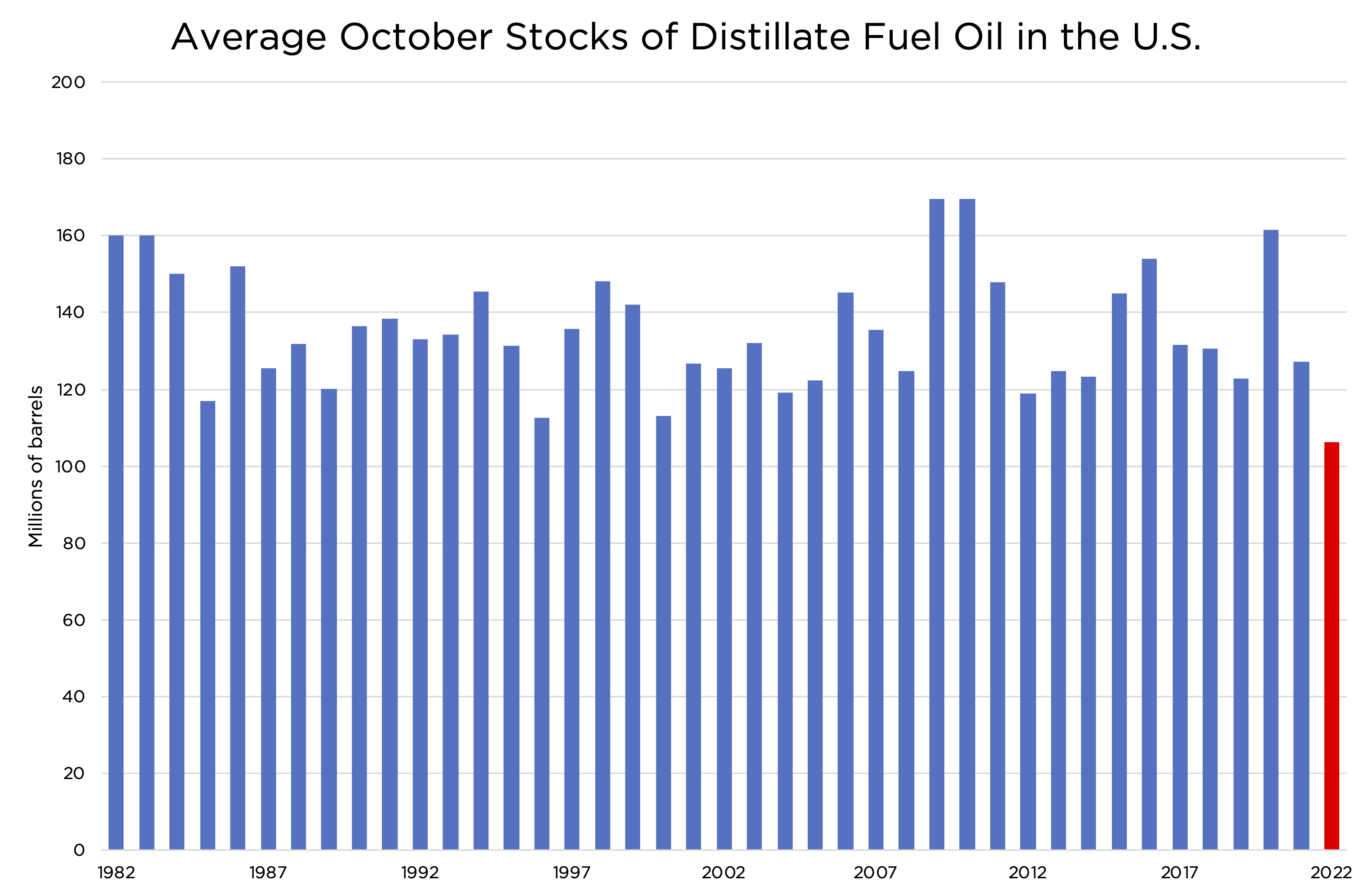
-
Higher diesel prices mean higher prices for:
- agriculture, which uses diesel tractors and harvesters
- every physical product, which is transported by diesel trucks, trains, and cargo ships
- home heating, especially in the Northeast2
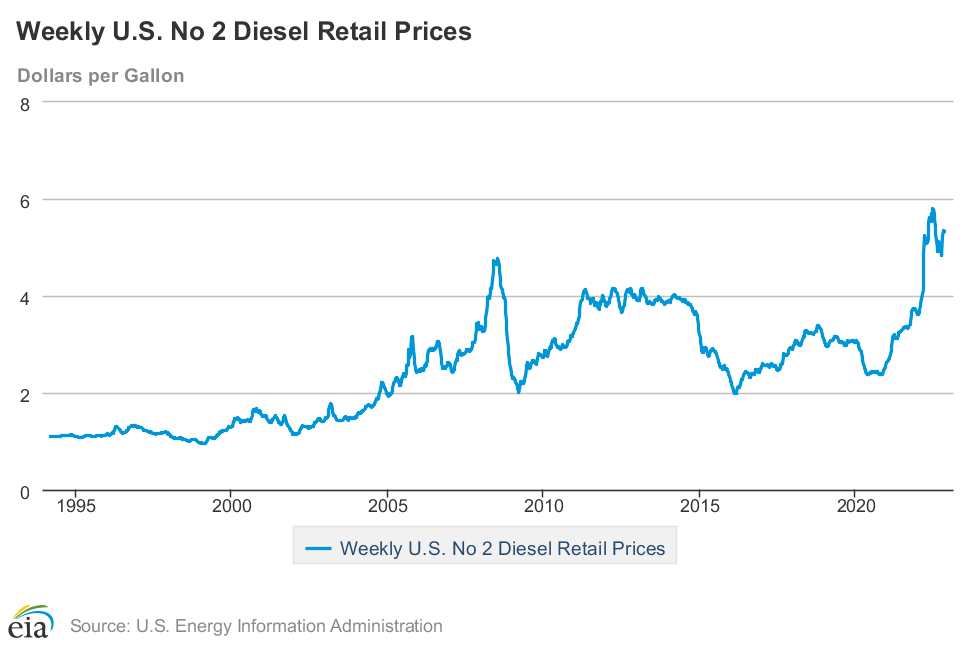
-
Diesel shortages could get worse in the coming months as European bans on Russian fuel kick in. Because diesel is a global market this will likely mean even higher prices in the US and Europe, and severe shortages in poorer regions.3
-
Because diesel is a global market there are many contributing causes to diesel shortages. The fundamental global cause is the global anti-fossil-fuel movement, which has suppressed all the fundamentals of diesel supply: oil investment, oil production, oil refining, oil transport.
-
While global anti-diesel policies were terrible, they actually provided us an opportunity to use our unmatched resources and ingenuity to become a huge diesel producer and exporter by liberating:
- Canadian oil imports
- New diesel-producing capacity
- New diesel investment
-
Instead of unleashing our diesel potential, clueless anti-fossil-fuel politicians destroyed it by
- Preventing us from importing Canadian oil well-suited to our refineries
- Preventing or shutting down diesel-producing capacity in the US
- Threatening new diesel investments
-
US diesel shortage cause 1: Preventing us from importing Canadian oil well-suited to our refineries
The Keystone XL pipeline would have carried a “heavy” oil well-suited to existing US refining capacity.
But anti-oil politicians delayed it and ultimately Biden killed it.4
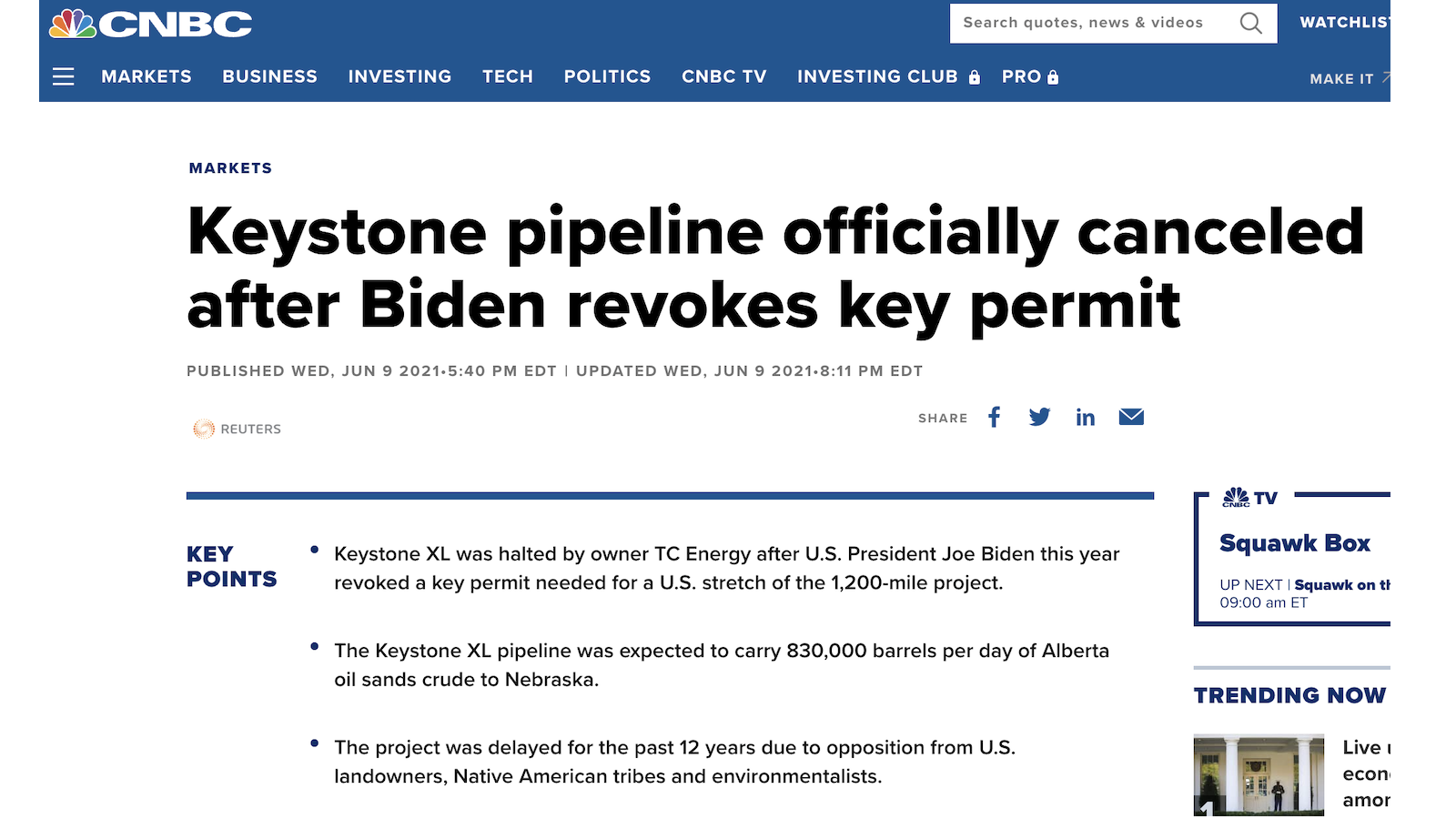
-
As I pointed out when it was announced that Biden would cancel Keystone XL, his (and other politicians’) cluelessness about the requirements for increasing diesel production was (and is) extremely dangerous.5
Here's what I find terrifying about the news that Joe Biden is planning to cancel Keystone XL. He doesn't even acknowledge (or know?) that the heavy oil we get from Canada is particularly vital given how US refineries work and the state of global oil demand (more diesel needed). -
Had the Keystone XL pipeline been approved promptly, it would have matched Canadian oil with suitable Gulf Coast refineries, providing good profits to US refiners and incentivizing them to expand to handle the potentially endless, secure supply of Canadian crude.6
-
Refiners make long-term plans. Their huge investments have to pay off for decades. The brutal ordeal and enormous cost of the Keystone XL project are no doubt spooking investors right now—preventing US refining capacity down the road, despite a global growth market.7
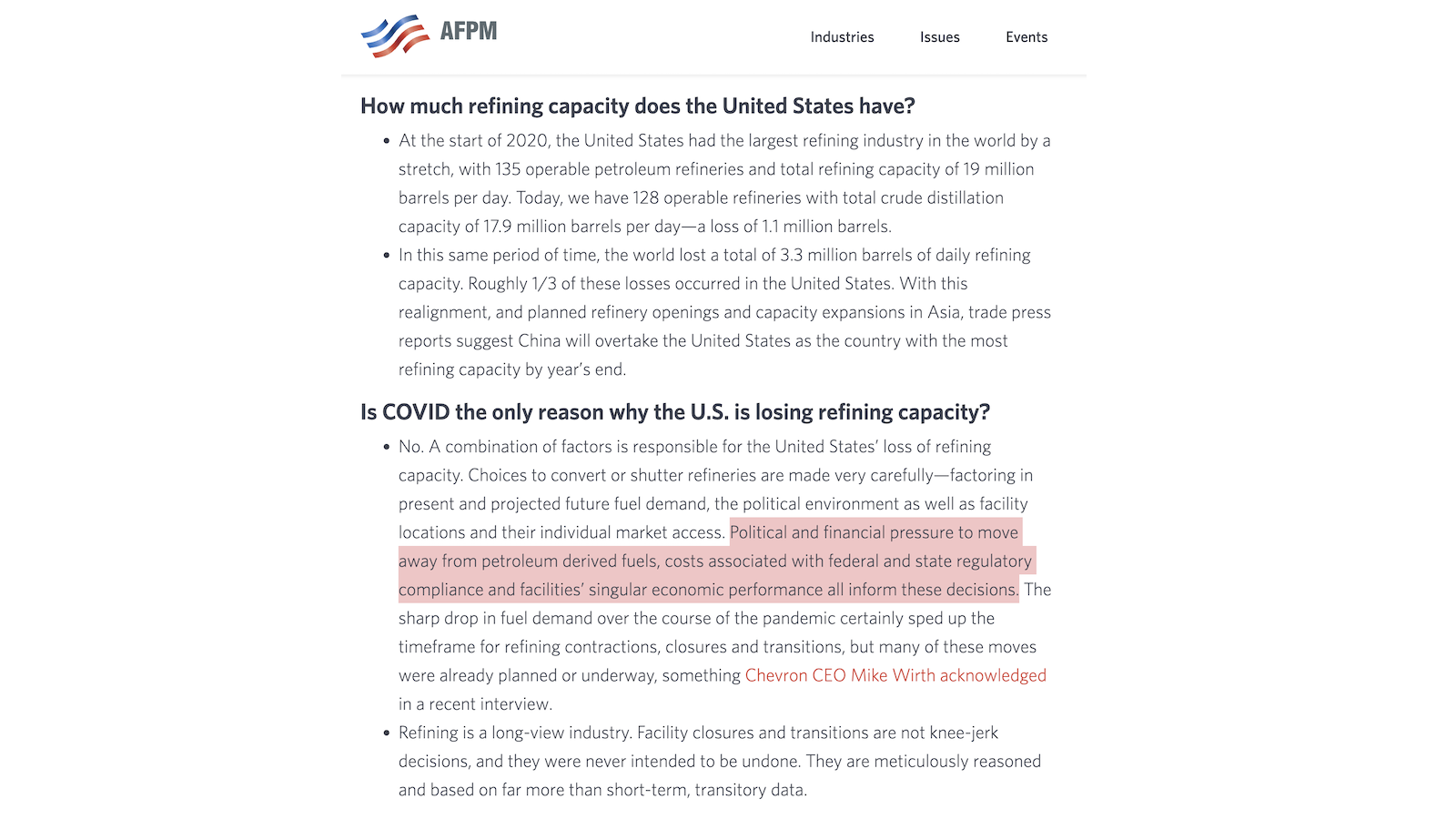
-
US diesel shortage cause 2: Preventing or shutting down diesel-producing refineries in the US
The combination of anti-fossil-fuel regulations and encouragement of the anti-fossil-fuel “Environmental Social Governance” (ESG) movement has prevented US refining capacity from growing sufficiently to meet demand.
-
Given that oil demand, especially diesel demand, is increasing and that US oil production has dramatically increased due to the shale revolution, you’d expect US refining capacity to have rapidly expanded in recent years. Instead, it has stagnated and even recently declined.8
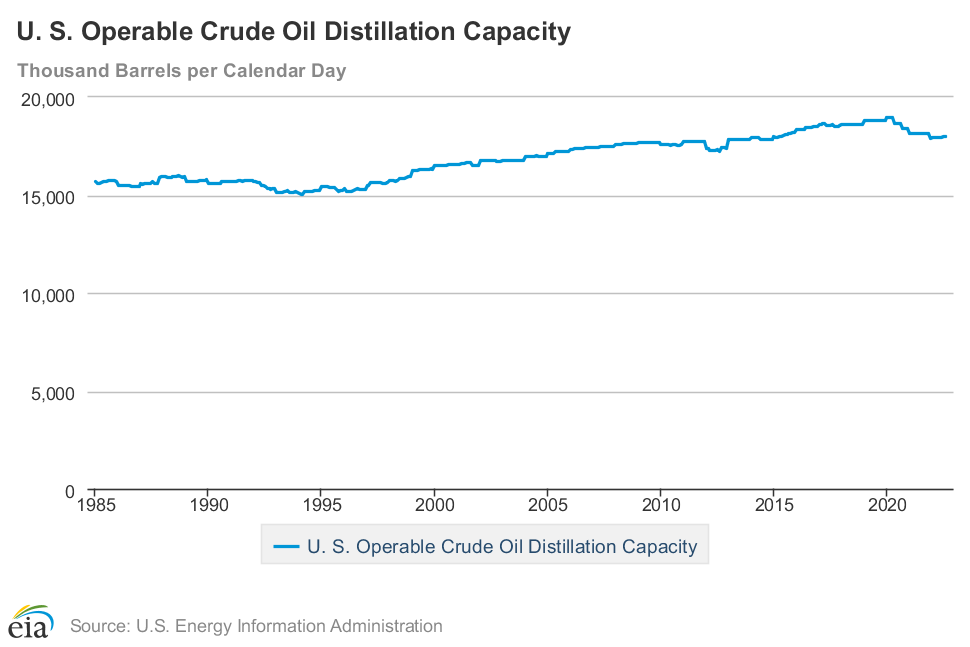
-
Why has US oil refining capacity stagnated when there are so many opportunities?
An increasingly hostile regulatory environment that views refining as an evil to be rapidly eliminated—not a necessity of life for billions for the foreseeable future.
-
Last year, the Biden administration shut down a Virgin Islands refinery. Instead of working with the operator to upgrade the refinery amidst the looming fuel shortage, the Environmental Protection Agency prevented the refinery’s 180,000 barrels/day capacity—including over 40,000 barrels/day of diesel.9
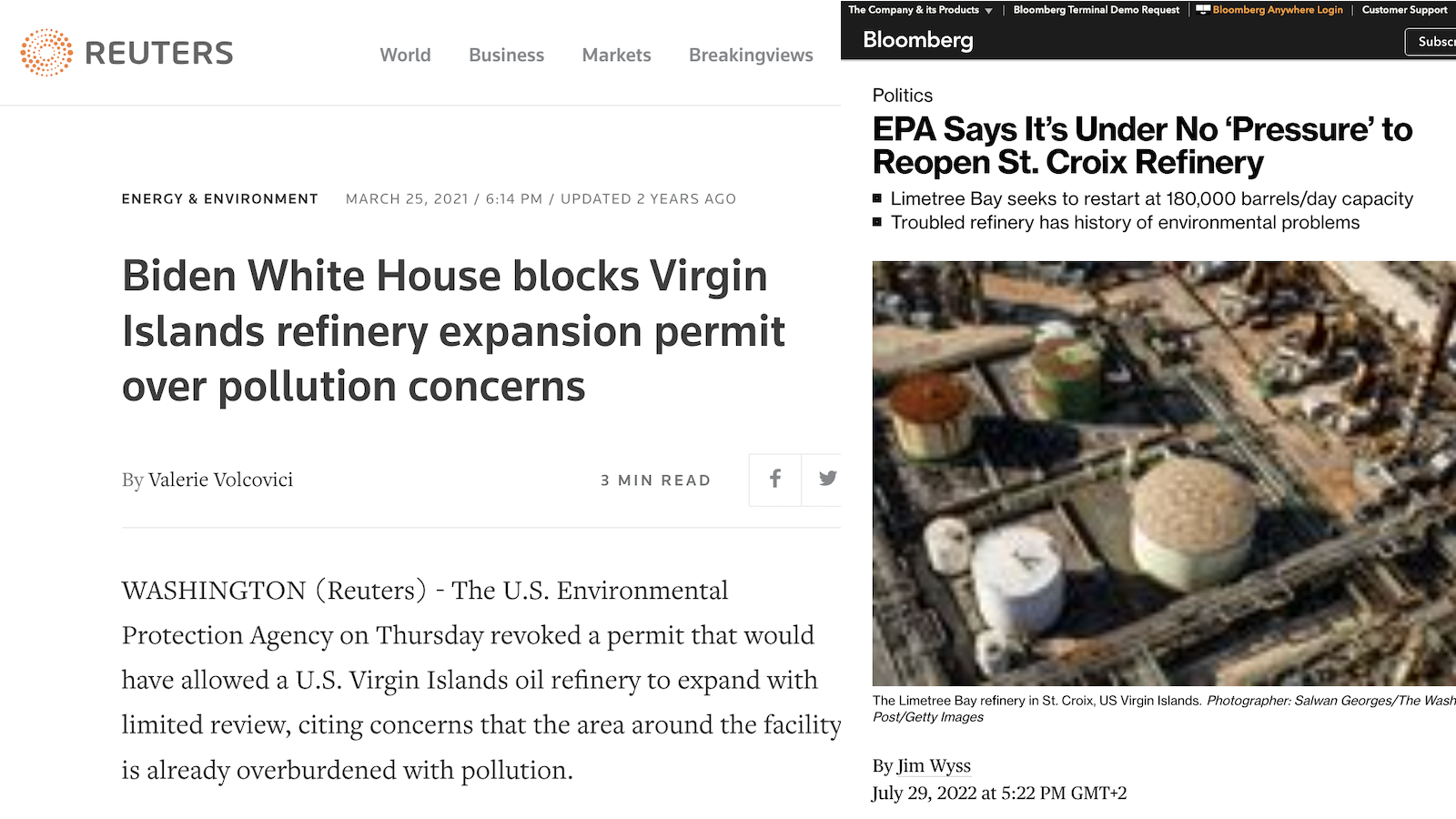
-
The shut-down Virgin Islands refinery also has the potential to expand to 450K barrels/day—over 100K barrels/day of diesel. But instead of eagerly working with the refinery to address any pollution issues, the Biden EPA has said it is under no “pressure.”10
-
One category of regulation that suppresses the availability of diesel is biofuel requirements. The government coerces refiners into converting to biofuels, which puts refineries out of commission for extended periods. 1/2 current refinery shutdowns are due biofuel conversions.11

-
Government biofuel mandates, including “blending” mandates, make the refining of diesel and other fuels more expensive—discouraging investment in greater diesel capacity, even though more diesel is needed around the world.12
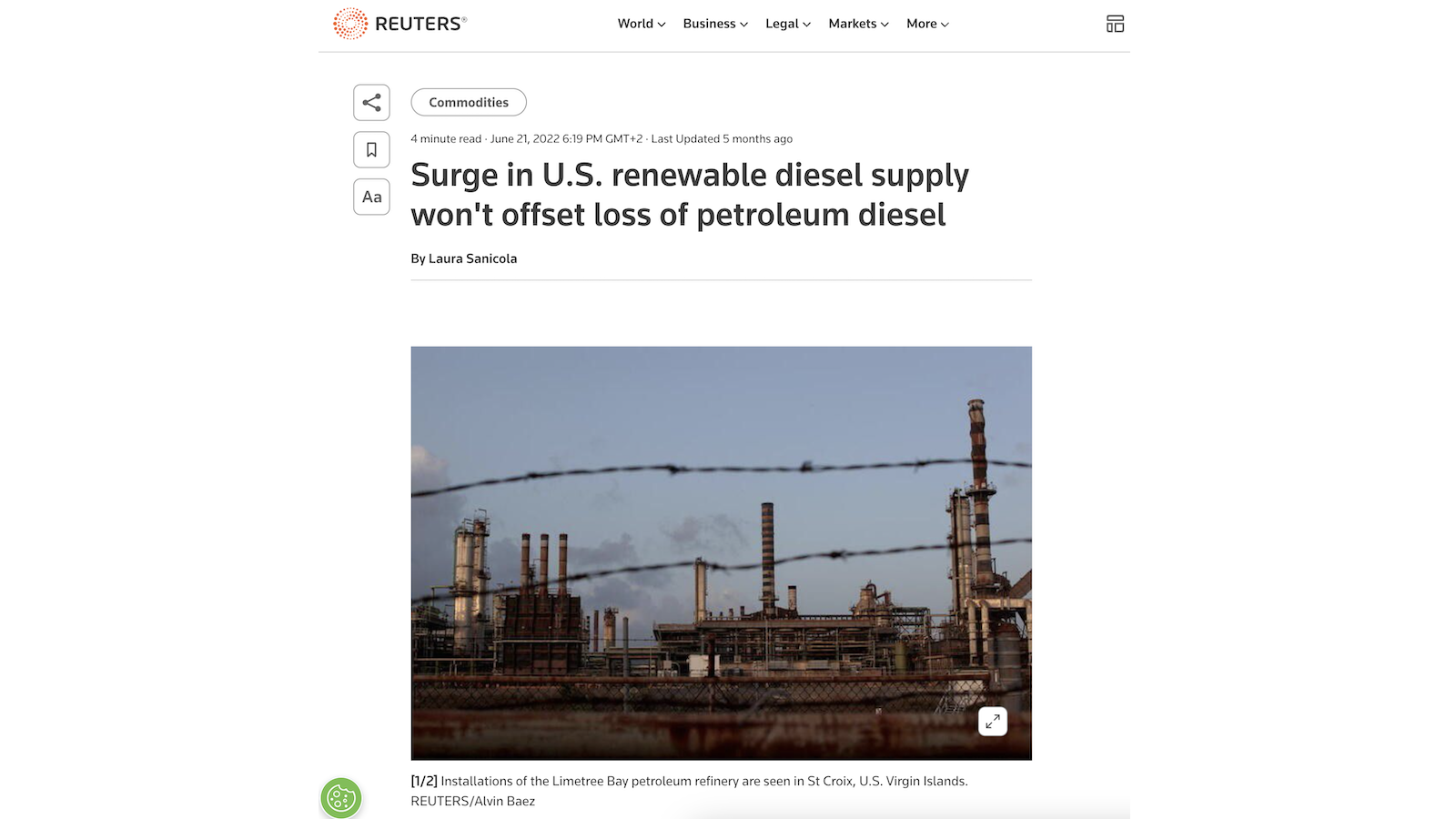
-
To make matters worse, the Environmental Protection Agency announced new, increased mandates for fuel blending with biofuels for 2022 and denied waivers to small refineries, a measure that increases compliance costs to refiners and further discourages new refining capacity.13
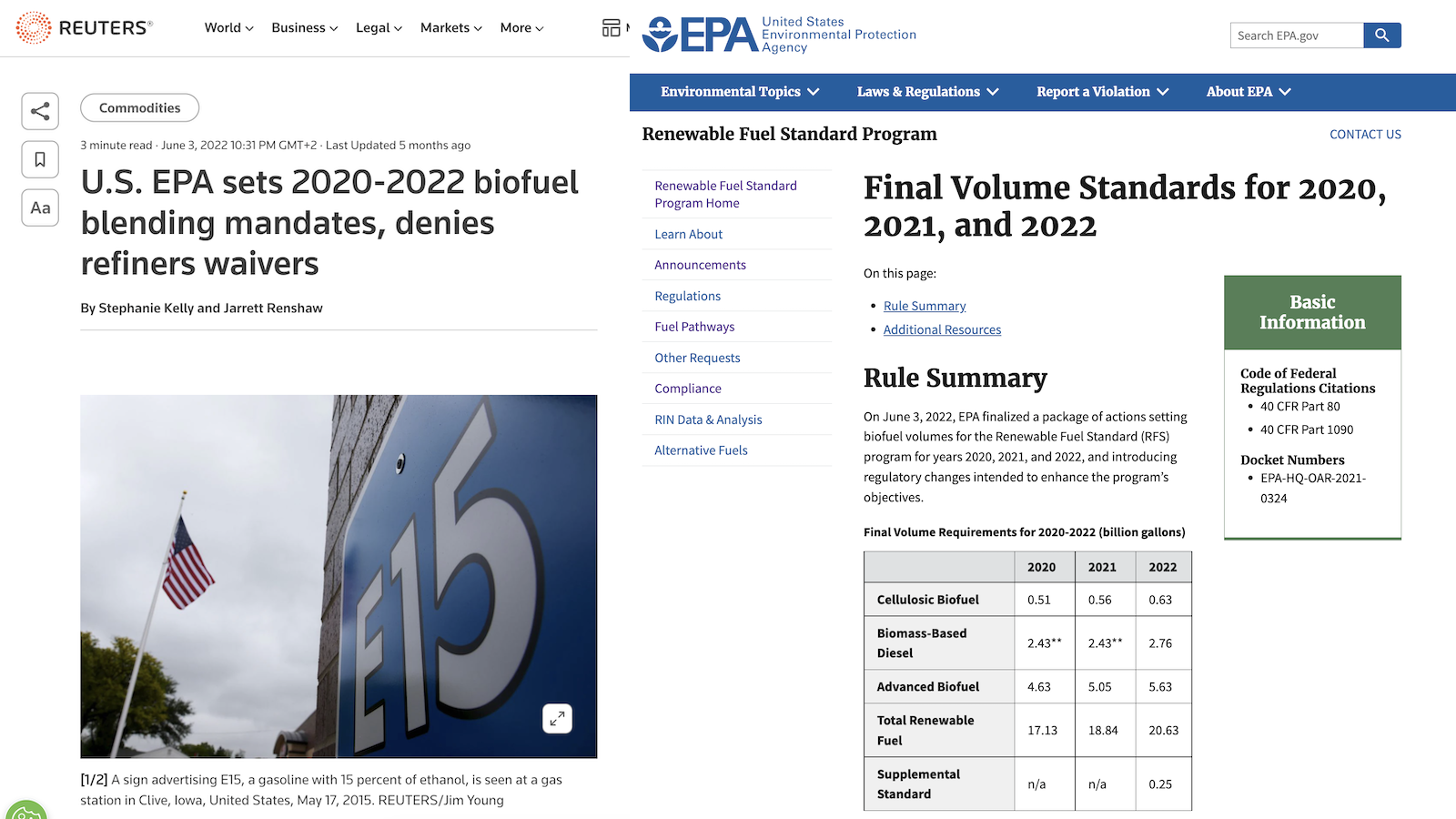
-
US diesel shortage cause 3: Threatened investments in diesel
Through anti-oil policies and threats against oil, our politicians have turned diesel refining from an appealing opportunity to a risk not worth taking—despite increasing global demand.14
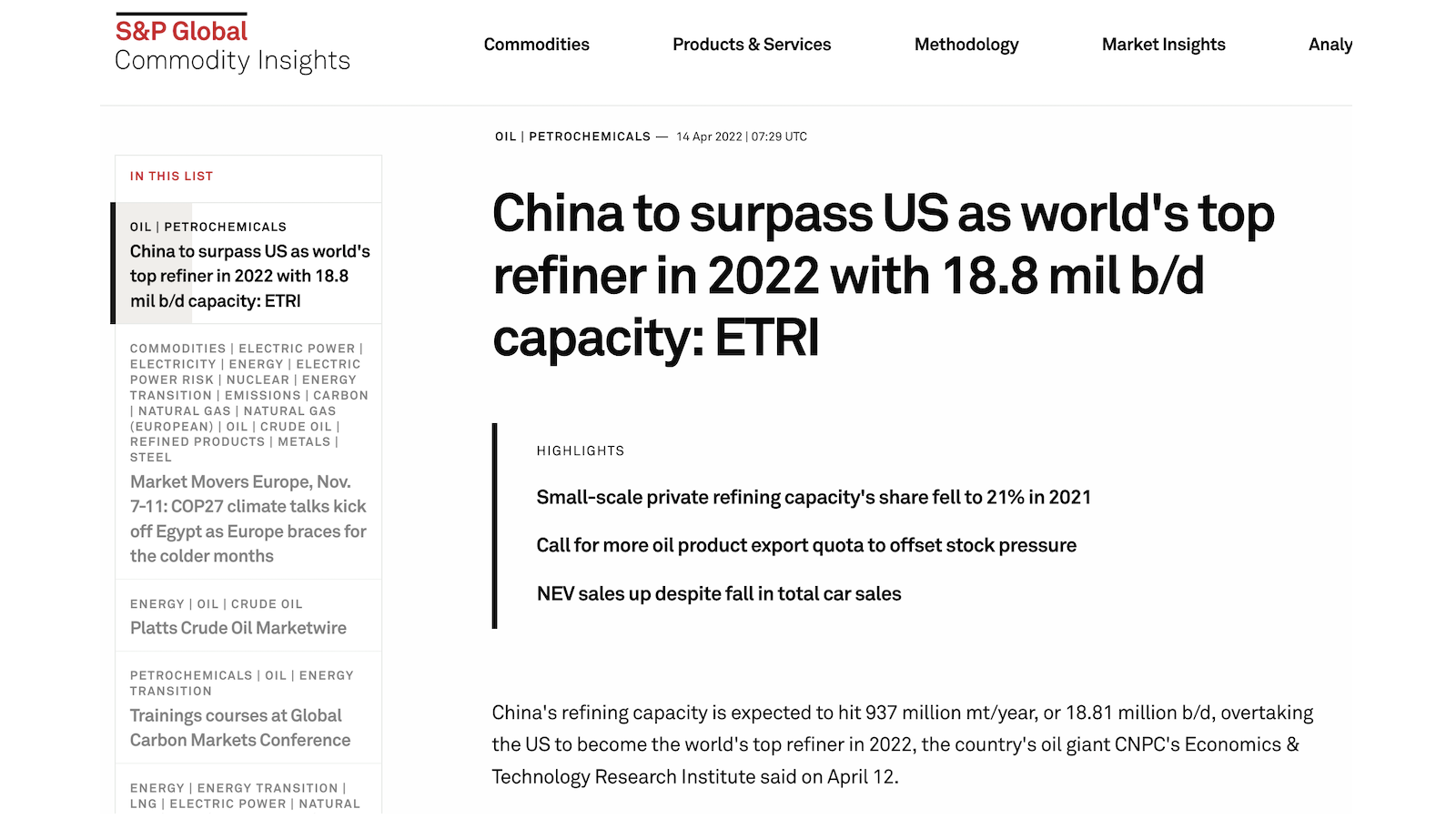
-
The leading threat to US diesel investments is our government’s “whole of government” commitment to eliminate fossil fuel use—captured by Joe Biden’s “I guarantee you, we’re going to end fossil fuel.” This tells would-be diesel producers, proceed and you will be punished.15
-
One major threat to diesel investment is the planned ban on oil-powered cars and trucks, including diesel-powered cars and trucks, by 2035 in California and New York. These planned bans tell investors: don’t invest in diesel because we are going to do our best to make your investment fail.16
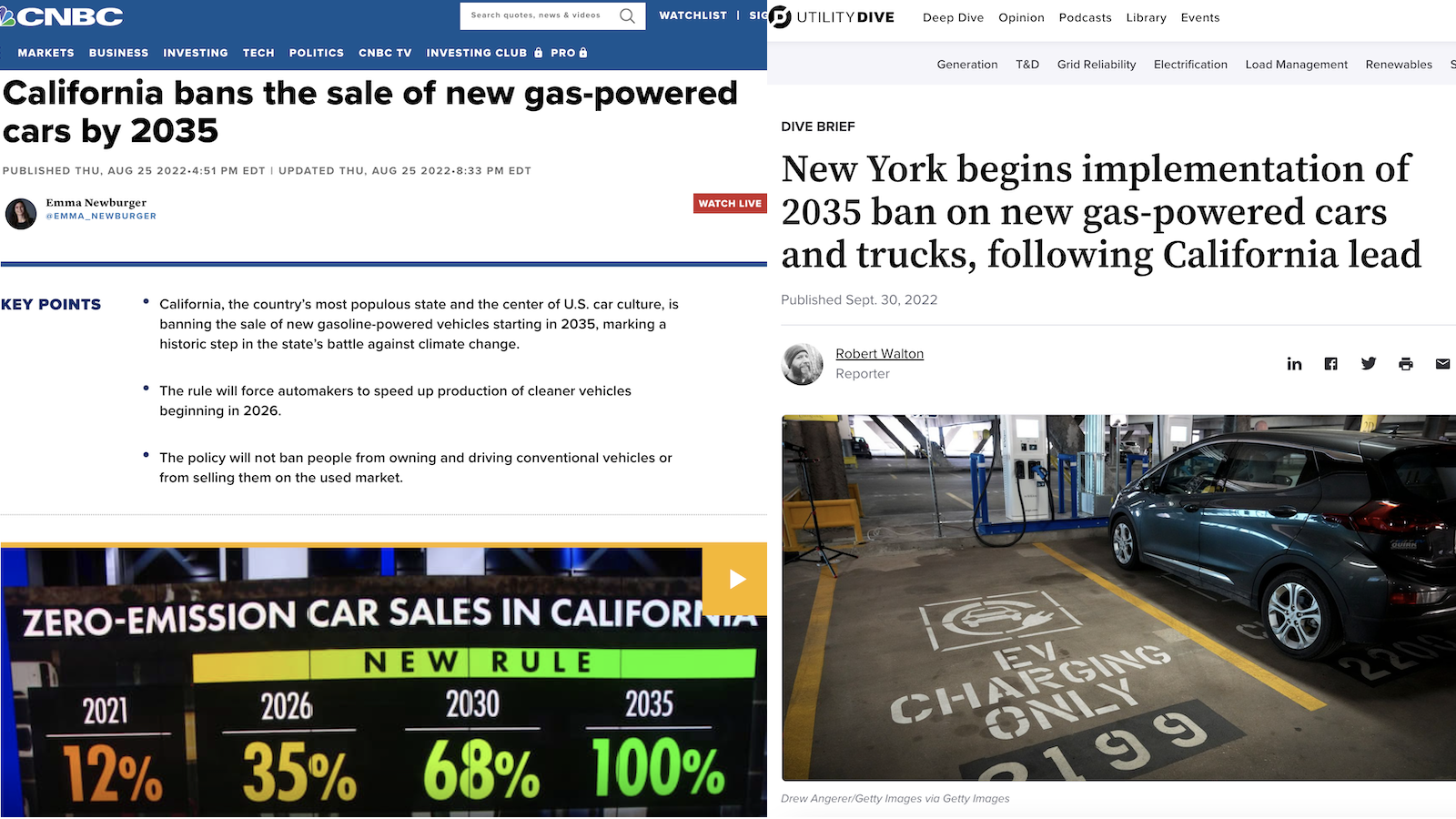
-
Another threat to diesel investment is government threats and punishments for high profits—e.g., today’s calls to seize “windfall profits.” This is another signal to investors that government will punish them if they manage to succeed.17
-
In a letter this year, responding to Biden's accusation of “price gouging,” the refining industry pointed out that it's at almost maximum utilization rates, and that additional capacity for oil-based fuels is difficult to bring online given the policy environment.18
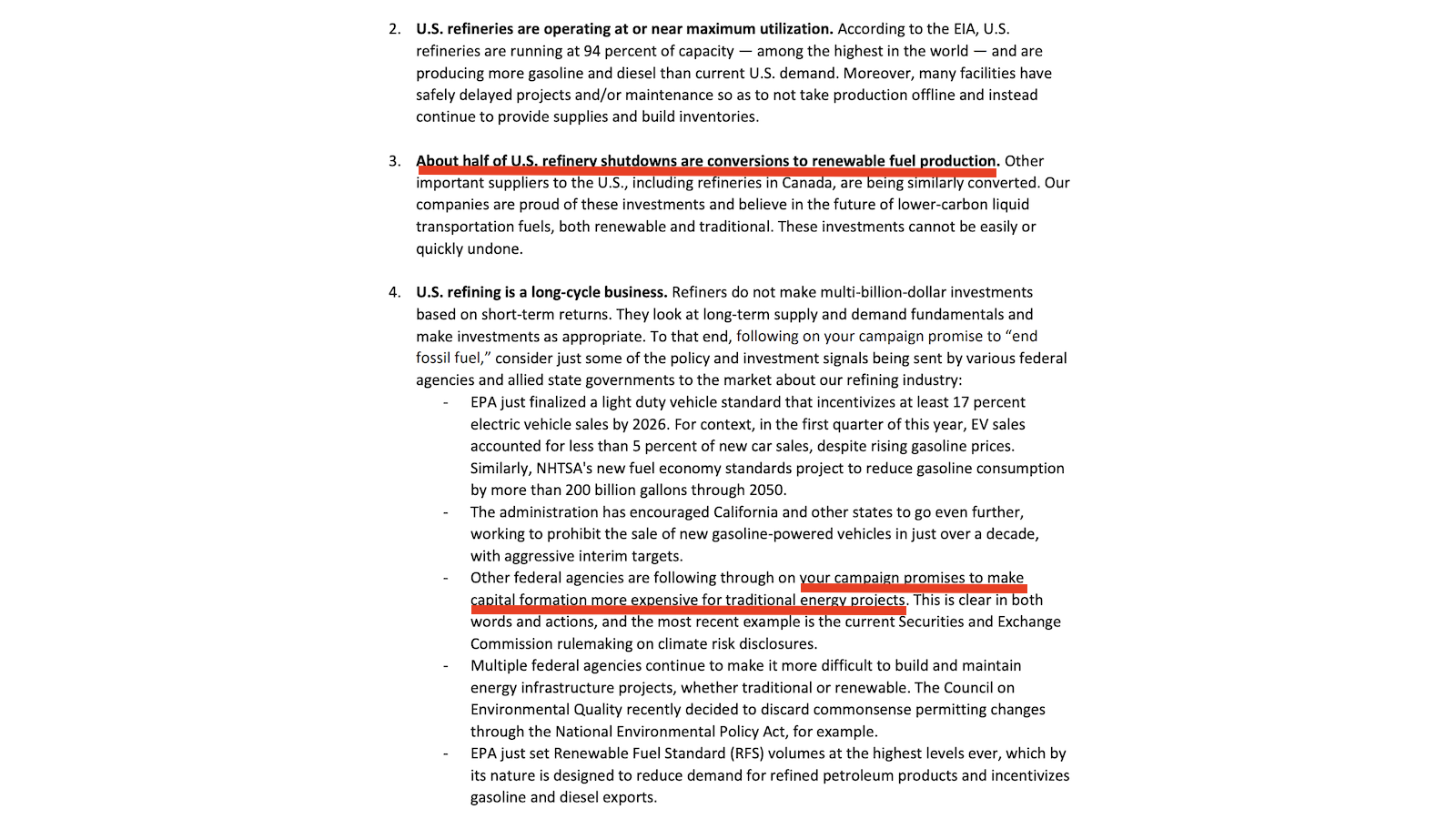
-
Another US diesel shortage cause: The Jones Act
The Jones Act requires, for no good reason, goods transported between two US ports to a US-built ship under the US flag. There are only 56 tankers that meet these requirements, and because they’re scarce they’re more expensive.19
-
Because of the Jones Act, most US diesel from Houston cannot travel by ship to Boston. Instead, Houston diesel must be shipped to some other country (e.g., South Korea) and Boston must get any shipped oil from some other country (e.g., Russia). This is bizarrely inefficient.
-
The Department of Homeland Security is only considering case-by-case waivers for the Jones Act to deal with the current energy crisis. But the Jones Act needs to be eliminated so that American diesel and other products can easily and cheaply reach American consumers.20
-
A danger: Instead of ending all the irrational restrictions that are suppressing diesel supply, the Biden administration is floating another irrational restriction: banning diesel exports. This would lead to even higher long-term prices by further disincentivizing diesel production.21
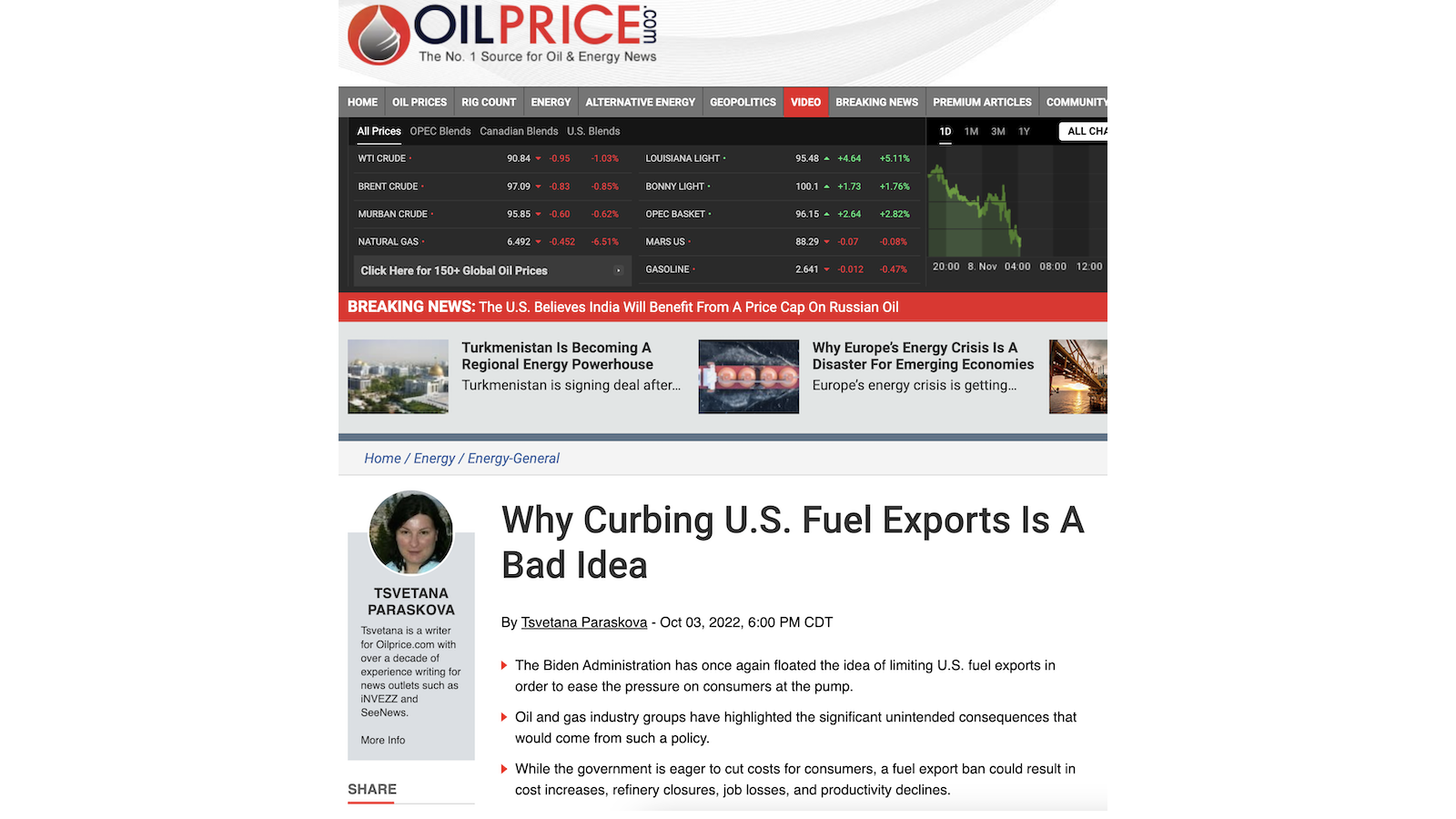
-
To address the diesel shortage short-term and long-term our government needs to:
- Publicly end its “whole of government” attack on oil production, refining, and transport
- Stop threatening refining profits
- Stop mandating biofuels
- Scrap the Jones Act
-
Summary: Anti-fossil-fuel US politicians have caused diesel shortages by:
- Preventing us from importing Canadian oil well-suited to our refineries
- Preventing or shutting down diesel-producing capacity in the US
- Threatening new investments in diesel
We need energy freedom.
References
-
U.S. Energy Information Administration - Weekly U.S. Ending Stocks of Distillate Fuel Oil↩
-
U.S. Energy Information Administration - Weekly Retail Gasoline and Diesel Prices↩
-
Bloomberg - EU’s Ban on Russian Fuel to Spark a Jump in Global Tanker Demand↩
-
CNBC - Keystone pipeline officially canceled after Biden revokes key permit
Competitive Enterprise Institute - Lessons from the Demise of ANWR and Keystone XL↩
-
American Petroleum Institute - Misunderstood Keystone XL a Reminder of the Importance of Critical Infrastructure↩
-
American Fuel & Petrochemical Manufacturers - Refining Capacity 101: What to Understand Before Demanding “Restarts”↩
-
U.S. Energy Information Administration - Refinery Utilization and Capacity↩
-
Reuters - Biden White House blocks Virgin Islands refinery expansion permit over pollution concerns
Bloomberg - EPA Says It’s Under No ‘Pressure’ to Reopen St. Croix Refinery
The Virgin Islands Consortium - New Owners of Limetree Bay Plan to Increase Production to 450,000 Barrels Per Day, Want to Help St. Croix Reduce Energy Costs↩
-
Bloomberg - EPA Says It’s Under No ‘Pressure’ to Reopen St. Croix Refinery↩
-
U.S. Energy Information Administration - Refinery Utilization and Capacity
American Fuel & Petrochemical Manufacturers / American Petroleum Institute - Letter to President Biden; June 15, 2022↩
-
Reuters - Surge in U.S. renewable diesel supply won't offset loss of petroleum diesel
McKinsey & Company - Who is paying for the biofuels mandate?↩
-
Reuters - U.S. EPA sets 2020-2022 biofuel blending mandates, denies refiners waivers
U.S. Environmental Protection Agency - Final Volume Standards for 2020, 2021, and 2022↩
-
S&P Global - China to surpass US as world's top refiner in 2022 with 18.8 mil b/d capacity: ETRI↩
-
Breitbart - Joe Biden Promises Environmentalist: ‘Look into My Eyes; I Guarantee You, We Are Going to End Fossil Fuel’↩
-
CNBC - California bans the sale of new gas-powered cars by 2035
UtilityDive - New York begins implementation of 2035 ban on new gas-powered cars and trucks, following California lead↩
-
New York times - Biden Accuses Oil Companies of ‘War Profiteering’ and Threatens Windfall Tax↩
-
American Fuel & Petrochemical Manufacturers / American Petroleum Institute - Letter to President Biden; June 15, 2022↩
-
Politico - DHS waives Jones Act for Puerto Rico to supply fuel after hurricane↩
